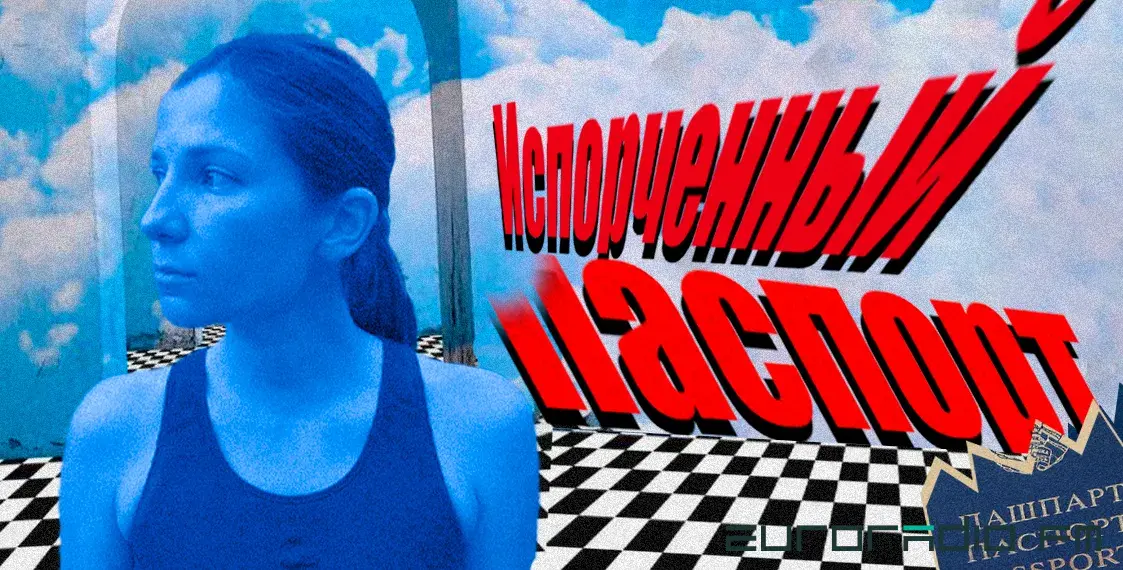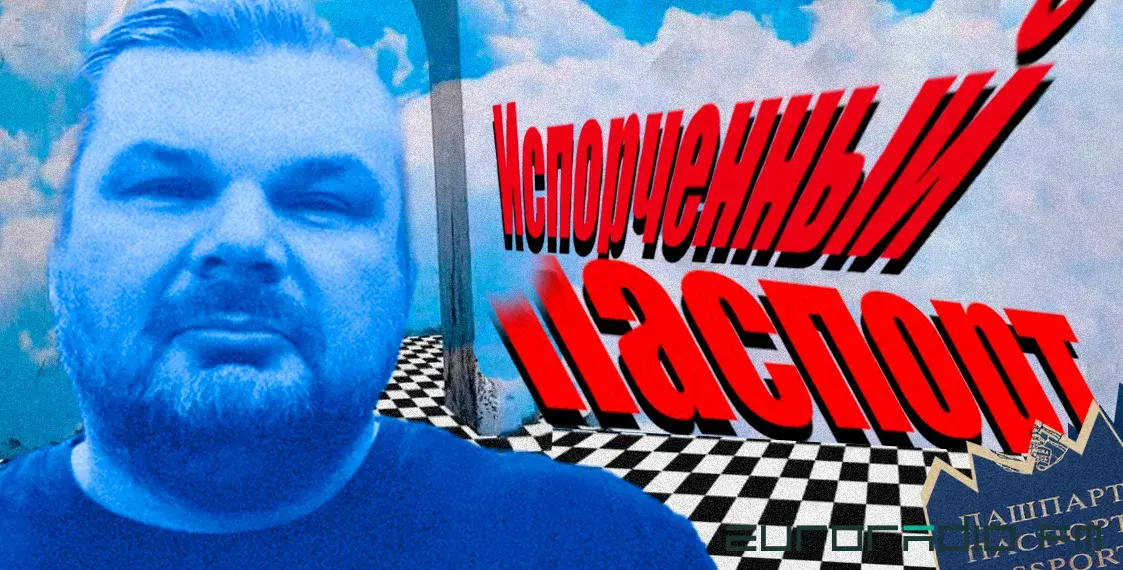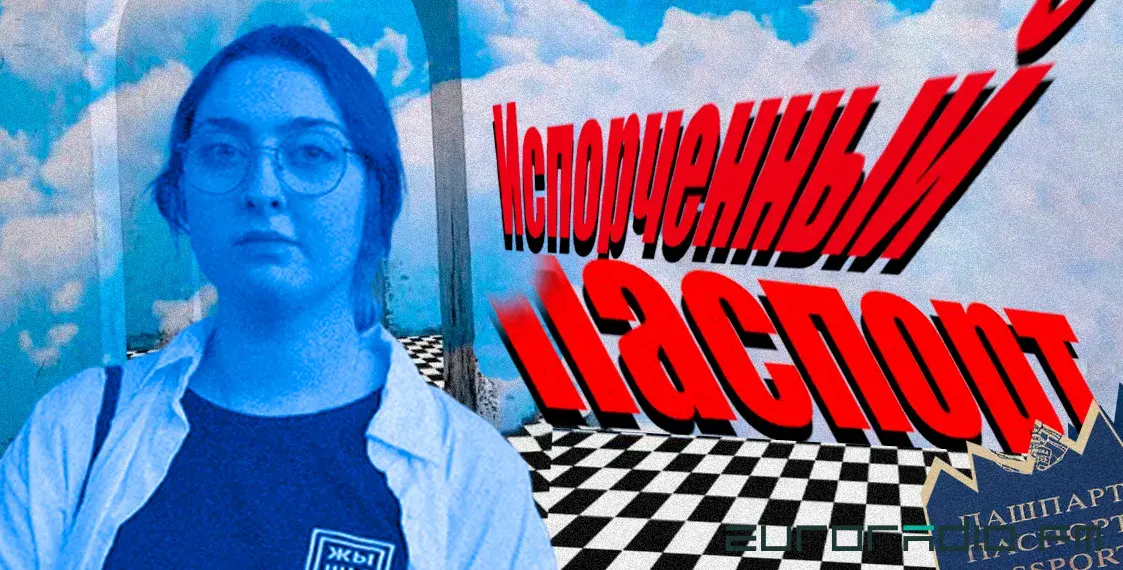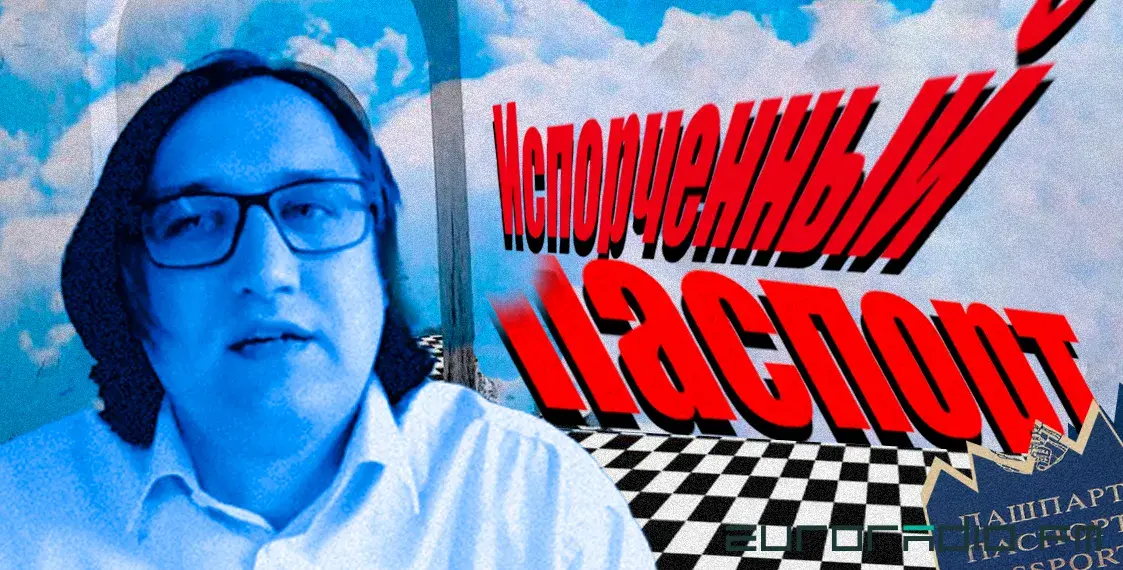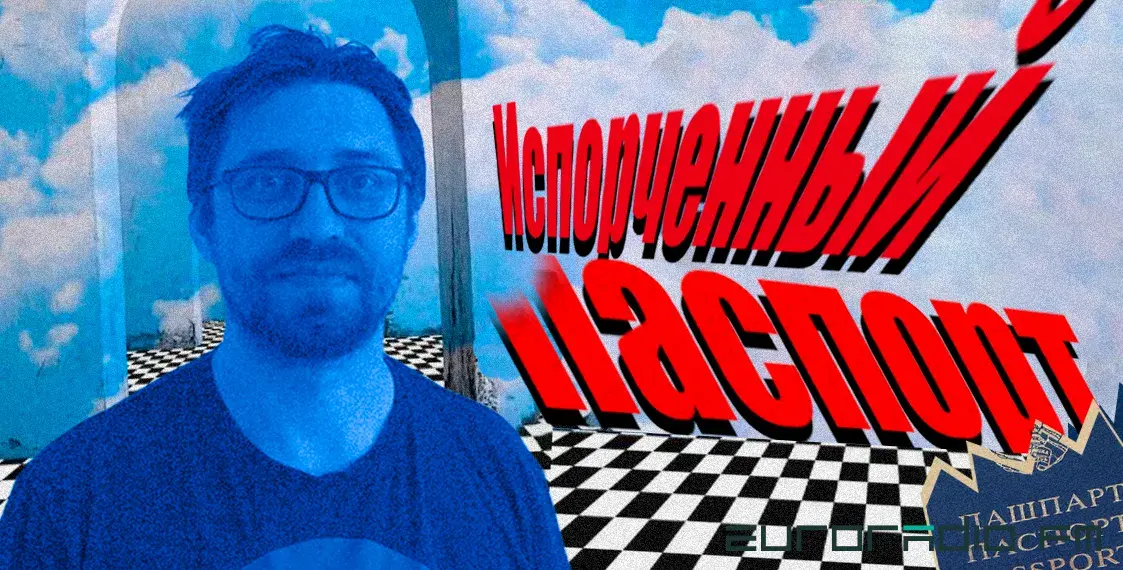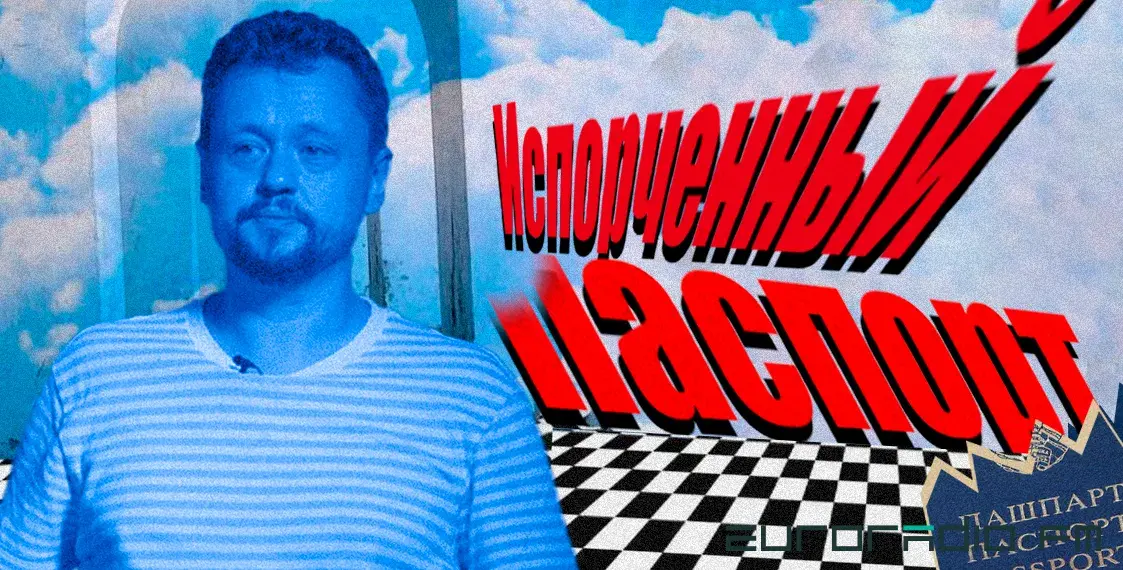How Belarusians face discrimination in Poland during Ukraine war

Collage by Euroradio
A year ago and now, Poland was two different countries for Belarusians. At least, sociologists, human rights defenders and the characters of our report, who have faced discrimination, say so.
You will learn how the attitude to Belarusians in Poland has changed over the six months of the war in Ukraine, how acute the problem of discrimination remains and what the owners of "spoiled" passports should do. When reading this story, remember: that many Belarusian migrants in Poland had no problems with accommodation, work and communication with Poles. The exceptions discussed below only confirm the rule.
The right to run
At the end of February, the Belarusian triathlete Viktoryia Khakimava was volunteering at the Polish-Ukrainian border. She lodged Ukrainian families fleeing the war in her apartment. Then, the girl learned that she, an amateur athlete who had been living in Warsaw for 13 years, was no longer allowed to compete.
The girl was preparing for a race in Malbork, Poland. "A Belarusian? Blacklisted."
"Sports organizations have banned even amateur athletes from participating in triathlon competitions. To them, Belarusians are accomplices to Russia's aggression in Ukraine. I felt the strongest pressure from both Poles and Ukrainians. I felt a sense of guilt. I thought: "That's right, punish me, I shouldn't compete...". But then I realized: you can't lump everybody together. It's not fair".
This is how Vika found herself in a new race where, in a short time, she had to convince sports organizations in Poland that the Belarusians were not the ones who supported Lukashenka's decisions. Also, she had to make it clear that because of the repression, many people fled their country and were forbidden to flee to run in a new country.
She already outlined her political stance in 2020: in Warsaw, she organized events in solidarity with Belarus and dedicated her performance in one of the toughest races in the world - the Otillo Swimran championship - to the Belarusian political prisoner Maksim Znak. On that very day, he was sentenced.
The athlete wrote official appeals to the Polish Triathlon Federation and drew attention to the problem of discrimination in social feeds. Sports clubs, of which she is a member, knocked on the door of Polish NGOs. Vika's husband, Tomasz, a Pole, stood up for his wife: he explained to fellow athletes why the Belarusians did not deserve a ban.
"I have no hard feelings against the Poles. I understand that the war in Ukraine is a great pain for everyone. But I think that in such a situation, we need to solve issues constructively. Talk with organizations, and sports federations, write appeals and meet and build a dialogue. Of course, it's difficult to change everyone's mind, but we must try to change the minds of those who make decisions. That's what we were doing," said the athlete.
In the race for the right to run with all the competitors, Vika finished successfully: the Polish Triathlon Federation lifted the ban on Belarusian amateur athletes. Despite this, according to the girl, the problem of discrimination has not disappeared in six months of the war.
"In July, my friend was beaten in the yard of his house. Several Poles heard him talking on the phone in Belarusian. They thought he was speaking Russian. He was attacked. Thank God the medics examined him, and did not need to be hospitalized. But there were large bruises and abrasions on his body and a lot of shock and resentment - for what?"
"We protect Belarusians who don't support Lukashenka"
Rafal Havel, founder of the Center for Monitoring Racist and Xenophobic Behavior in Poland, says that the most frequent complaints from Belarusians to their organization are physical aggression.
"Dozens of Belarusians have turned to our organization during the six months of the war. We help the Belarusians get a medical examination after a beating, help them to file complaints to the police and prosecutor's office, and initiate the case. We've won almost every case in court that concerns the Belarusians".
If Belarusians are excluded from cultural or sporting events, the Center's human rights activists start working with the organizers.
"We have made materials showing what a real Belarusian flag looks like and that imposed by Lukashenka, about the values the Belarusians share, and what language they speak. Admittedly, this education does not always work, and sometimes we just hit the wall because the organizers say, "No, we don't want any Belarusians and Russians because they attack Ukraine. They commit war crimes."
According to Havel, not all Poles are still aware of what is happening in Belarus. And the war in Ukraine has pushed the problems of the Belarusians to the background of the information agenda. If authoritative Polish politicians talked more often about the Belarusian victims, it could change public opinion. But until they do not -- the problem of discrimination remains acute.
"We protect Belarusians who do not support the Lukashenka regime. But if we are talking about a person who is associated with the illegitimate government or is a supporter of it, then restricting access to events and competitions is the right thing to do. That's what the entire civilized world does. Belarusians who collaborate with the Lukashenka regime should thus understand that they support the misanthropic regimes."
"The HR department shuddered at my passport"
"In five years of living in Poland, I had no problems with employment. My documents were in order, and I knew Polish; I was educated as a political scientist here - I was a desirable candidate. After the war, I became an outcast...".
After six months of the war, Alina Dzeravyanka from Belarus was still unable to find a job with a local employer. In December of last year, she quit her job at the coffee house where she worked as an assistant manager. At the end of February this year, she started her quest to find a new job. It turned out to be almost impossible to do with a Belarusian passport.
"At first, I tried to return to the coffee house, where I had left in December. I applied for a lower position - a barista. I went for an interview - everything was fine. We even signed the admission documents. In the end, they turned me down with the words: "You know, if you were Ukrainian - it would be much easier for you...".
After that, Alina tried to get a job at the bank's call center. There, too, she heard "no," and the girl was told that there would be a lot of problems with her documents. The third was an interview at a hotel in Warsaw.
"The person who interviewed me was satisfied with everything. We went to the HR department to solve the job registration issue. You should have seen the staff's reaction when I took my passport out of my bag! They literally shrugged my passport. I said: "Yes, I am from Belarus, but I have the right experience, I had a high position, and I am a responsible person." They replied: "We will call you back on Monday. That Monday was two months ago."
To her face, they didn't tell her that the problem was her passport's "wrong" color. But she found work only with her own people: Alina got a job at a bakery that was opened by Belarusians in Warsaw.
"Belarusians were not offended by discrimination"
According to the sociological research "The Belarusians in Poland: attitude to the war, aid to Ukraine, discrimination," conducted in May 2022, 58% of the Belarusians in Poland faced discrimination or personally know those who faced discrimination. These are refusals to lend housing, provide bank services, to hire people. Dismissals, exclusion from sports or cultural events, disliking a child in an educational institution, and also property damage, insults, threats, physical assaults...
Aleg Alampyeu, Ph.D. in sociology and author of the study, draws attention to the following figures:
"73% of those who faced discrimination still expressed their desire to help Ukraine. And they believed that it was absolutely necessary to do this. They did not take this situation so close to heart. They were not offended...".
We asked Aleg if he encountered discrimination in Poland during the war in Ukraine.
"I was just processing research data when my wife returned from the bank and said: "I'm being thrown out of the bank because I'm a citizen of Belarus."
According to the sociologist, simply drawing a line between the Belarusians and the Lukashenka regime is not enough to shape public opinion. It is important to remind people that Belarusians continue to fight on the side of Ukraine, collect humanitarian aid, remain volunteers, donate resources to help Ukraine, and continue to oppose the official authorities of Belarus.
"It is better to face xenophobia sooner than later"
"We had already arranged to meet with the landlady in Warsaw to see the apartment. I asked her by text: "When should we come up to see the apartment? She said, "Where are you from? From Ukraine?" - "From Belarus." She wrote that in this case, she couldn't rent us an apartment. I replied that it is better to face xenophobia sooner than later."
In Belarus, Fyodar Charniak worked for a large IT company that closed its office in Minsk and offered relocation to its employees. He chose Poland: the man already had a residence permit in that country.
"I was brought up in such a way that I am half Polish. I come from the Hrodna region. My grandparents always said I was Polish; Polish TV was always on at home. Polish culture is quite close to me.
The man stresses that although the incident with the owner left an unpleasant aftertaste, he considers it an exception.
"The owners of other apartments reacted kindly to my accent and willingly showed the place to me. And in general, I noticed that Poles treat Belarusians with interest, understanding, sympathy...".
Don't keep quiet
Aliaksey Lyavonchyk, the co-founder of the BY_HELP Foundation, has been working on the topic of discrimination against the Belarusians since the beginning of the war: he collected case studies, kept the topic on the informational agenda, and cooperated with human rights defenders. Many victims are afraid to report that they encountered hostility. Lyavonchyk insists: that it's dangerous to remain silent.
"Never keep quiet. If you keep quiet, it will continue. Poles continue to support us, and there is less discrimination".
According to Aliaksey Lyavonchyk, there is a set of simple actions Belarusian facing discrimination can take.
"The first is to join the community of their diaspora in social networks ("Belarusians in Warsaw"). They will help you with advice. The second thing is to collect evidence. Have you got a photo, video, or screenshot? Write a complaint to the police or prosecutor's office. You should send a copy to the offenders. It will not be pleasant for them. And thirdly, you can always come to "Belarusian Youth Hub" in Warsaw, where you can be put in touch with lawyers, human rights activists, who can advise you how to defend yourself and protect others ...".
With the support of Mediaset
